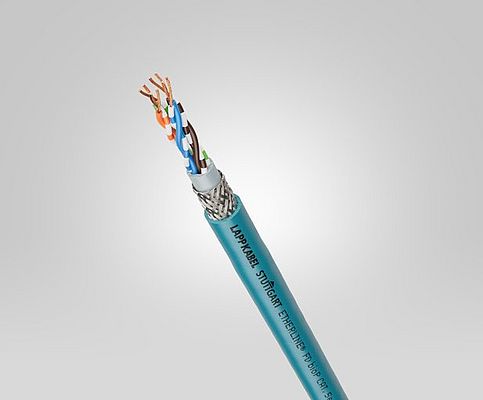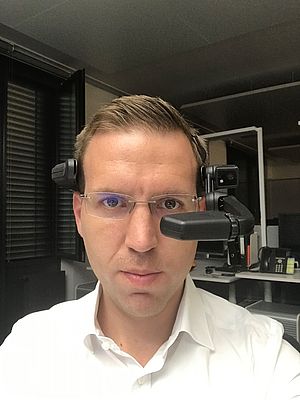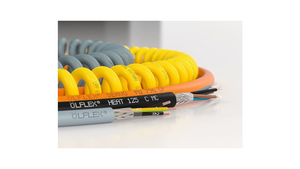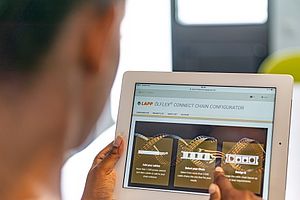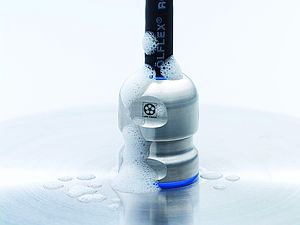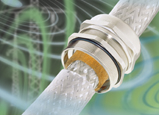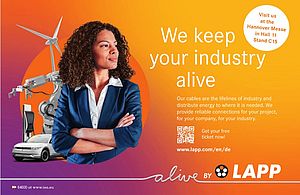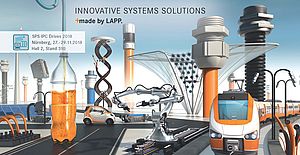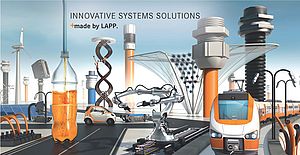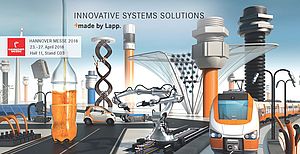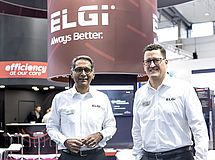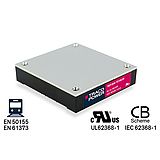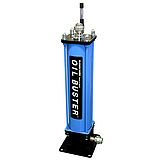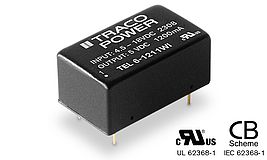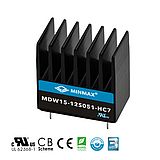While copper already uses large quantities of secondary raw materials, LAPP is now working intensively on the sustainable optimisation of sheath materials and is further promoting the use of bio-based plastics.
Last year, LAPP already presented the first prototypes of cables with bio-based sheathing. There was a great deal of interest, although through more complex production processes the cost for the cables are higher. LAPP is now going into series production with the ETHERLINE® FD bioP Cat.5e. The data cable consists of a partially bio-based sheath material. The sustainable variant with a bio-based outer sheath consists of 43 per cent renewable raw materials (in accordance with ASTM D6866). The product properties are the same as for the standard variant made of purely fossil raw materials. This reduces the carbon footprint by 24 percent compared to the fossil-based TPU sheath.
For demanding applications
Both the fossil and bio-based variants are suitable for patch cable assembly up to a cable length of 60 m in particularly demanding applications: for example, for constantly moving use in cable chains, in moving machine parts or also for EtherCAT and EtherNET/IP applications. Thanks to its Cat.5e performance up to 1000 Mbit/s, the ETHERLINE® FD bioP Cat.5e enables fast information exchange and is used to transmit analogue and digital signals in the frequency range up to 100 MHz. In addition, the copper braiding with a high degree of coverage guarantees optimum protection against electromagnetic interference. Halogen-free and flame-retardant materials reduce the possible hazards in the event of a fire. In addition, the Bio-TPU outer sheath is insensitive to mineral oil-based lubricants and is chemically resistant in many cases. The highly flexible Cat.5e Ethernet cable has been successfully tested in LAPP’s own test centre for over 1 million bending cycles in the cable chain. The UL/CSA certification in accordance with the technical data also allows the product to be used in North America.
Next prototype in the pipeline
The next more sustainable variant is the ÖLFLEX® CLASSIC FD 810 in the pipeline. An initial prototype was recently unveiled. The challenge: it is not yet technically possible to produce polyvinylchloride - PVC for short - entirely on the basis of bio-based raw materials. One starting point is therefore a partially bio-based sheath made of PVC compound, the bio-based content of which is 42 per cent according to ASTM6866.


